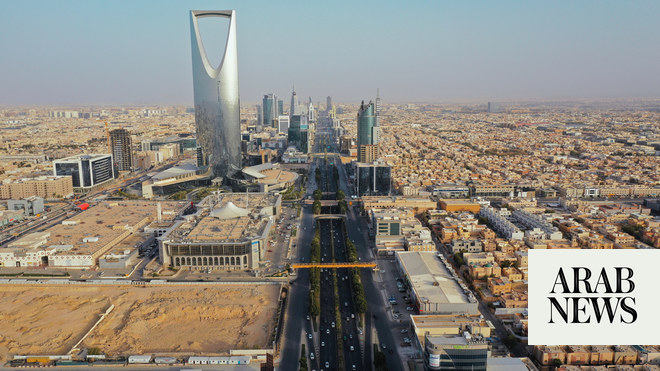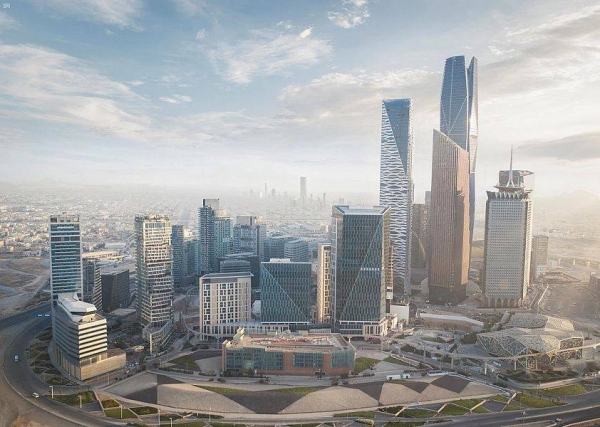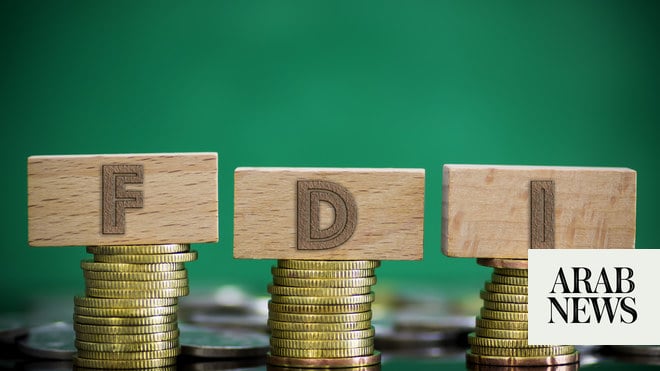
RIYADH: Thanks to a strong currency and a ceiling on gasoline prices, the International Monetary Fund has kept its inflation projection for Saudi Arabia unchanged at 2.8 percent in 2023.
The Kingdom’s non-oil sector is predicted to remain strong and grow at an average of 5 percent this year, the Washington-based lender noted.
The growth of the non-oil sector is considered very crucial for the Kingdom’s future as it is currently pursuing its economic diversification journey.
In May, the IMF’s Regional Economic Outlook for the Middle East and Central Asia also echoed similar views. It stated that the possibilities of a rise in headline and core inflation in oil-exporting countries remain low.
“Headline and core inflation in many oil-exporting countries like Bahrain, Iraq, Kuwait, Oman, Qatar, and Saudi Arabia remain relatively lower than elsewhere — as subsidies and caps on certain products, the strengthening of the US dollar to which many of the countries peg their currencies, and limited share of food in the consumer price index basket have helped to offset imported inflationary pressures,” said the IMF in the report.
The IMF mission to the Kingdom also welcomed the Saudi government’s efforts to decouple spending from oil price fluctuations “by establishing and implementing a fiscal rule decisively.”
In April, the IMF also revised its forecast for Saudi Arabia’s economic growth this year by 0.5 percent to 3.1 percent, compared to its previous projection of 2.6 percent in January.
The fund, however, downgraded its projection for the Kingdom by about 0.3 percent to 3.1 percent in 2024, down from 3.4 percent in January.
The IMF mission which concluded its visit to Saudi Arabia also praised the structural reforms which are happening in the Kingdom in line with Vision 2030.
IMF noted that Saudi Arabia has witnessed remarkable progress in digitization, regulatory and business environment, and women’s participation in the workforce.
According to the lender, Saudi Arabia is the fastest-growing economy among the G20 nations, and pointed out that the Kingdom has made remarkable progress in reducing unemployment rate.
Earlier in March, Saudi Arabia’s General Authority for Statistics revealed that the unemployment rate among Saudis has dropped to its lowest level since records began in 1991.
According to the report, unemployment fell to 8 percent in the fourth quarter of 2022, from 9.9 percent in the previous three months.
IMF also lauded Saudi Arabia’s efforts to go net zero, and it welcomed various initiatives of the Kingdom to go sustainable which include the increased use of renewable energy, embracing carbon capture and storage technology, along with the ambitious plan to become the world’s largest hydrogen exporter.
Meanwhile, the Organisation for Economic Co-operation and Development upgraded Saudi Arabia’s gross domestic product growth to 2.9 percent in 2023, from its initial forecast of 2.6 percent in March.
Earlier in May, a report released by GASTAT suggested that Saudi Arabia’s inflation rate remained unchanged at 2.7 percent in April compared to March 2023.
In October 2022, the IMF noted that Saudi Arabia would remain the fastest-expanding economy among the G20 countries, despite the turmoil caused by rising inflation and soaring interest rates.












